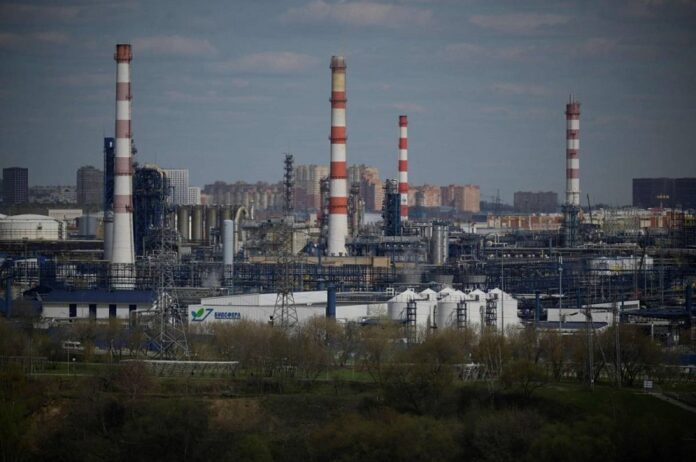A new Kremlin decree will ban oil and petroleum product sales to “legal entities demanding compliance in contracts with the price ceiling introduced by the European Union,” Russian Deputy Prime Minister Alexander Novak told Russian media on Friday, according to Politico.
Moscow is ready to “reduce partial production at the beginning of next year … [by] somewhere between 500,000 and 700,000 barrels per day,” Novak added.
That accounts for between 5% and 7% of Russia’s daily oil output, a drop that Novak called negligible.
An EU embargo on seaborne Russian oil imports came into effect earlier this month — a response to Russia’s invasion of Ukraine. The embargo came with a parallel agreement among G7 countries to ban insurance and shipping companies from participating in sales of Russian oil above $60 per barrel to third countries. The system will be reviewed every two months with the goal of ensuring the cap is at least 5% below the market price for Russian crude.
Russian Urals grade crude is currently selling for $49 a barrel, a discount of about $30 to the benchmark Brent crude price; the Brent price rose by 1.8% in the wake of Novak’s announcement.
The G7 deal seeks to limit Moscow’s oil export earnings while avoiding a global price shock due to a major loss of Russian supply.
Novak called the measure “populist” and said it would “interfere with market pricing.”
“We do not accept any interference in the energy markets, in general in market instruments,” he added, “because in fact it will only lead to risks, to a shortage of resources in the energy market, to rising prices.”
Russia has repeatedly threatened to curb oil production and forbid sales to countries participating in such a price cap — but Friday’s announcement is the first time the Kremlin has detailed how much it is ready to reduce output in response, and how it will react to any request to modify existing oil supply contracts.
That could affect Russian oil delivered via pipeline to Poland, Germany, Hungary, Slovakia and the Czech Republic, which is currently not subject to EU sanctions.
A second EU embargo on refined oil products such as Russian diesel will take effect February 5, with plans for a G7 price cap to also apply to such products at an as-yet-undetermined price.
Novak did not detail when the decree would be published.
Russia has enacted similar retaliatory measures on natural gas exports. Although such sales were not covered by sanctions, the Kremlin insisted that customers pay in rubles — seen as a violation of existing contracts — and cut off supplies to countries refusing to conform.


